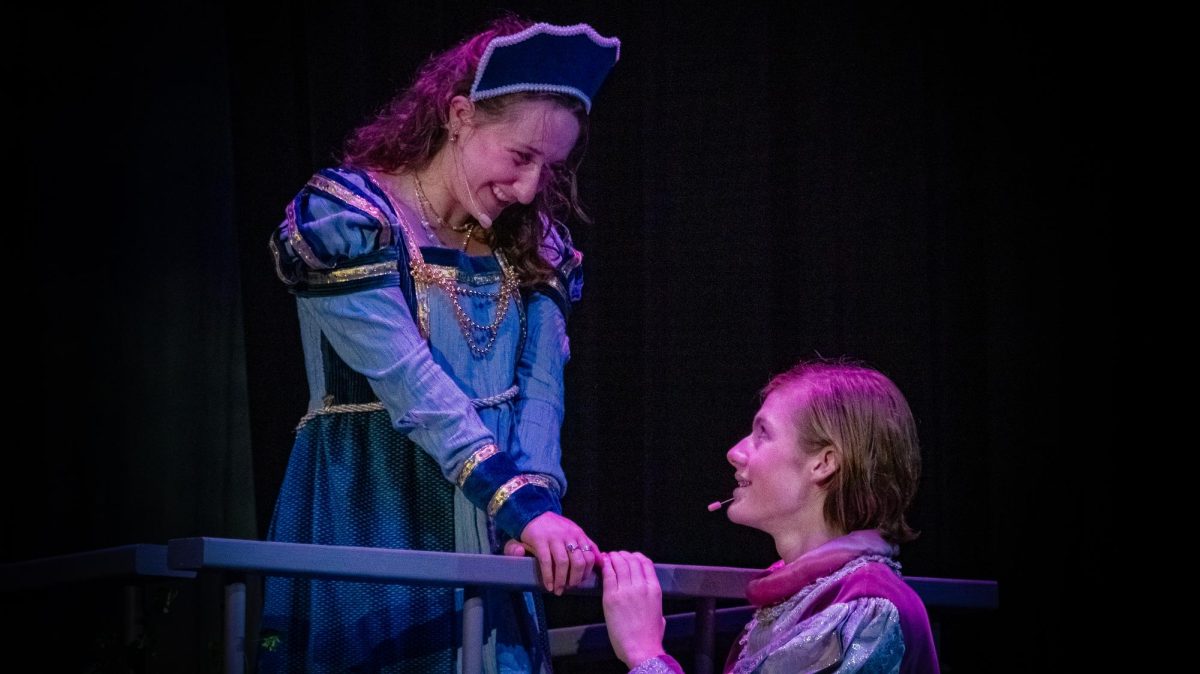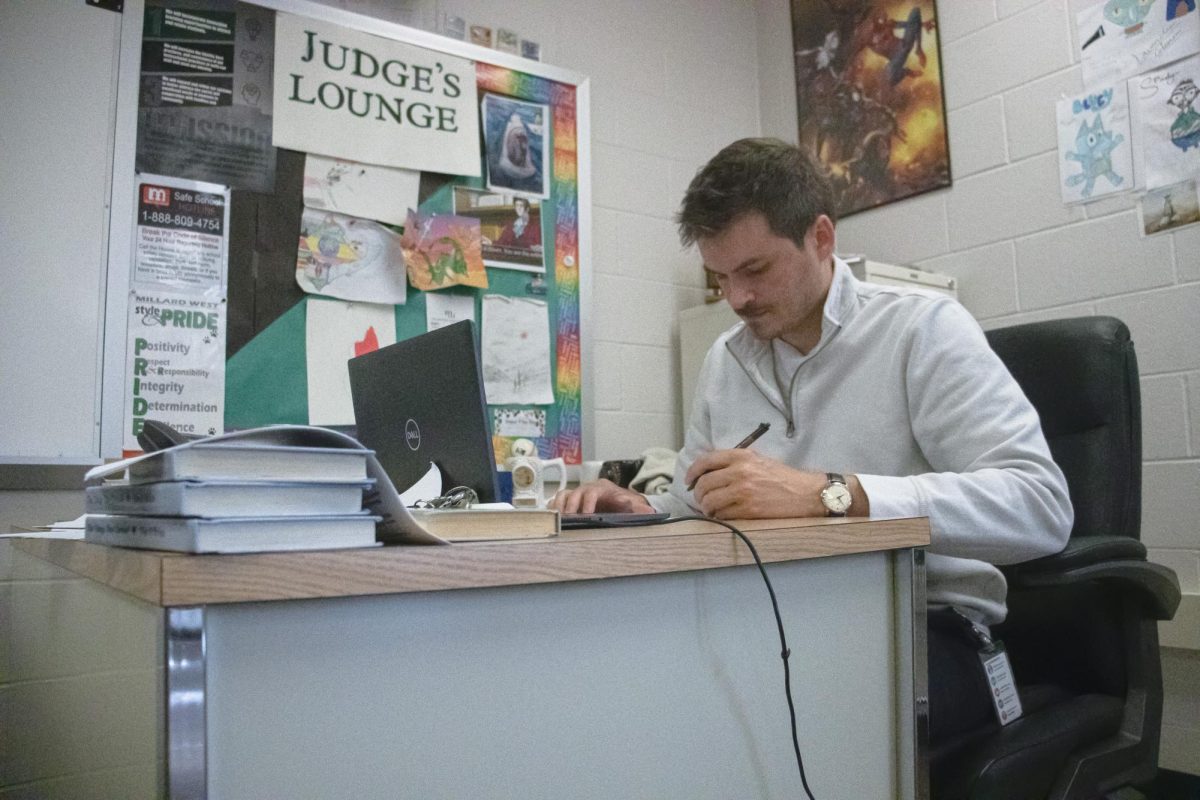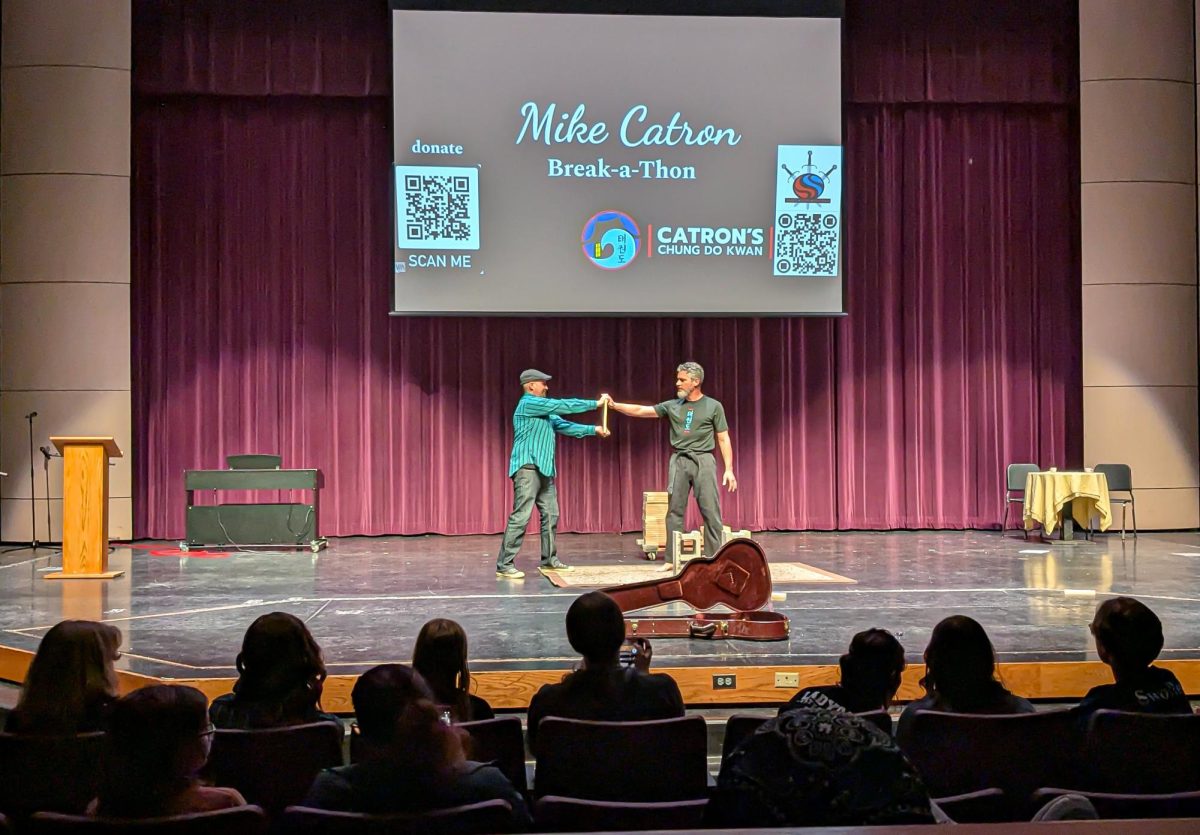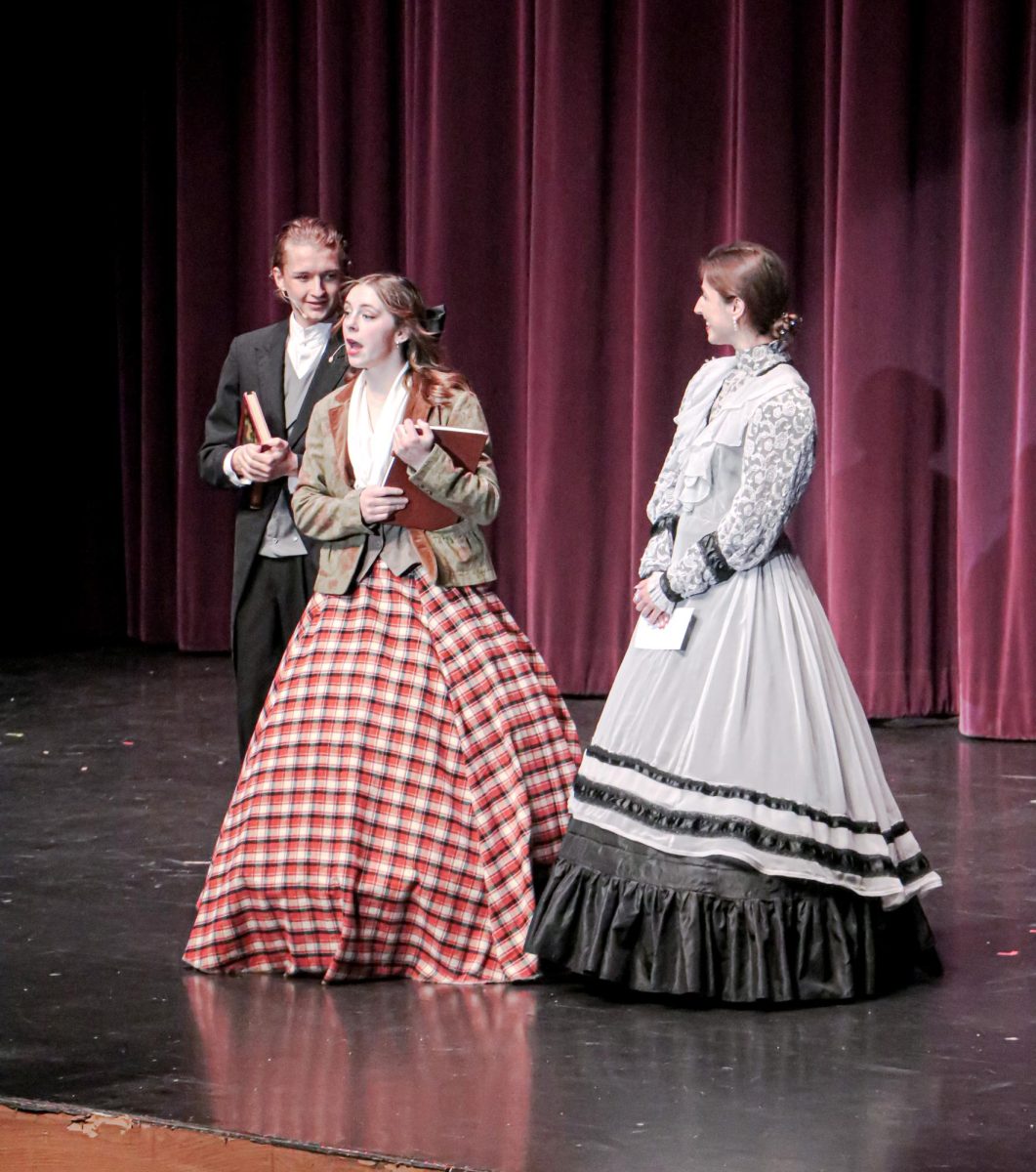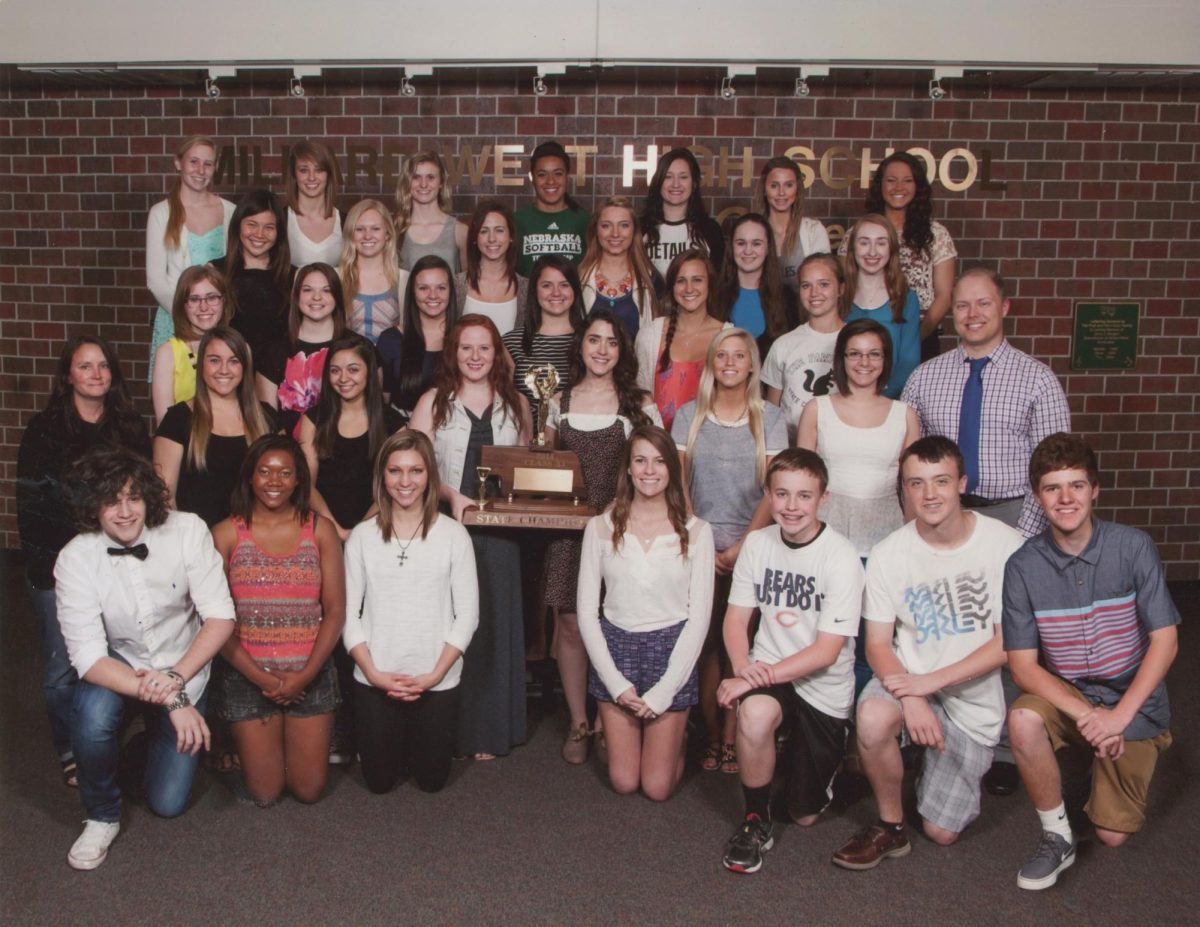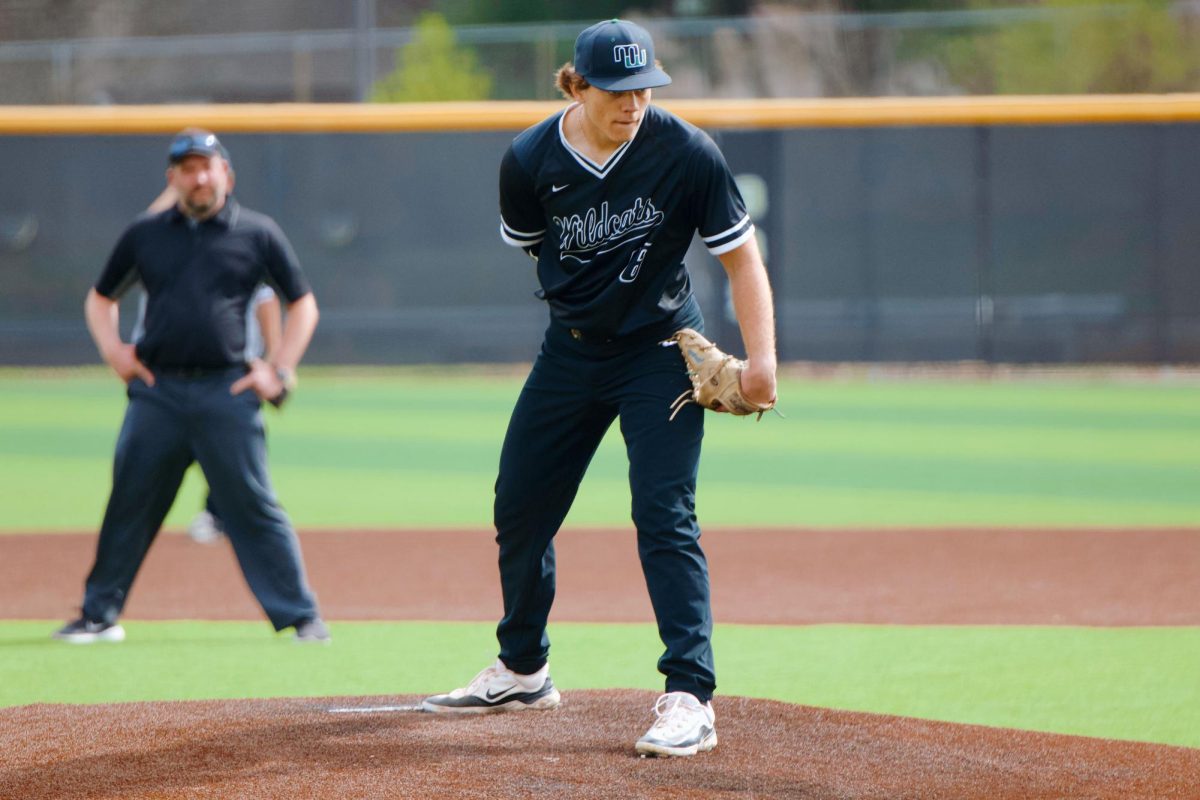After practicing for over a month, the theater department performed their shortened rendition of Romeo and Juliet once on Thursday, Aug. 29, and twice on Saturday, Aug. 31.
Theater director Brooke Phillips has been preparing for this play since choosing it in May last school year and beginning work in July. The show is titled, “Sixty-Minute Shakespeare: Romeo and Juliet,” due to it being a shortened version of the original script, meant to last around an hour and only including the parts most influential to the plotline.
“This is a revival season for our 30th year of theater, and I directed ‘Romeo and Juliet’ about 17 years ago,” Phillips said. “I thought originally the first one was a flop, so I wanted another go at it.”
But setting up for any play, let alone a Shakespearean play is challenging for casts and crews alike. Shakespeare’s plays are known for their comedic, yet dark and dramatic nature, and Phillips had to ensure it was perfected this time.
“I had to first ask teachers if they would go along with my idea to combine staff and students, and then I had to bring in some special guest artists to help students with the meaning and the language [of Shakespeare],” Phillips said. ‘We had to build the set, get costumes, rehearse and block the scenes, create projections, focus the lights and much more.”
With a portion of the cast comprising teachers, there was a new learning curve that the cast, crew and teachers alike had to work their way around since this was the first play in Millard West’s history to contain teachers as actors.
“I knew the play since I used to teach it ions ago, but for this, since it was shorter, I knew I had less time to show the relationship between Nurse and Juliet so I really focused on the scenes and what they were trying to portray,” oral communication teacher Jennifer Jerome (Nurse) said. “Memorizing my lines was the hardest part. The students had them memorized so rapidly and I didn’t want to let them or Mrs. Phillips down. Once I made my note cards and could use them on stage rather than the book, it became easier.”
Although many of the teachers were stepping onto stage for the first time, their performances were well-received by both the students and staff. The collaboration was heavily enjoyed not just by the cast, but by the show’s attendees as well.
“It was so ridiculously fun,” Lily Lane (Juliet) said. “I knew a good amount of them and was just meeting the rest, but it was hilarious to watch the people you took classes from try to act out Shakespeare for the first time. It was a very unique experience creating relationships with them on and off stage that weren’t professional.”
The collaboration between teachers and students added a brand new dynamic to the production, blending the teachers’ experiences with the youths’ energy. This unique approach to school plays allowed for much deeper connections on stage between cast.
“It brought a whole new layer to the performance that no other has had,” Lane said. “It made it that much more believable than having highschoolers playing every role, young and old.”
The production not only showcased the talent of students, but also showed the potential of staff in future plays. As the department celebrates its 30th year, this play marked a milestone as a throwback to a classic that will be remembered for years to come.

